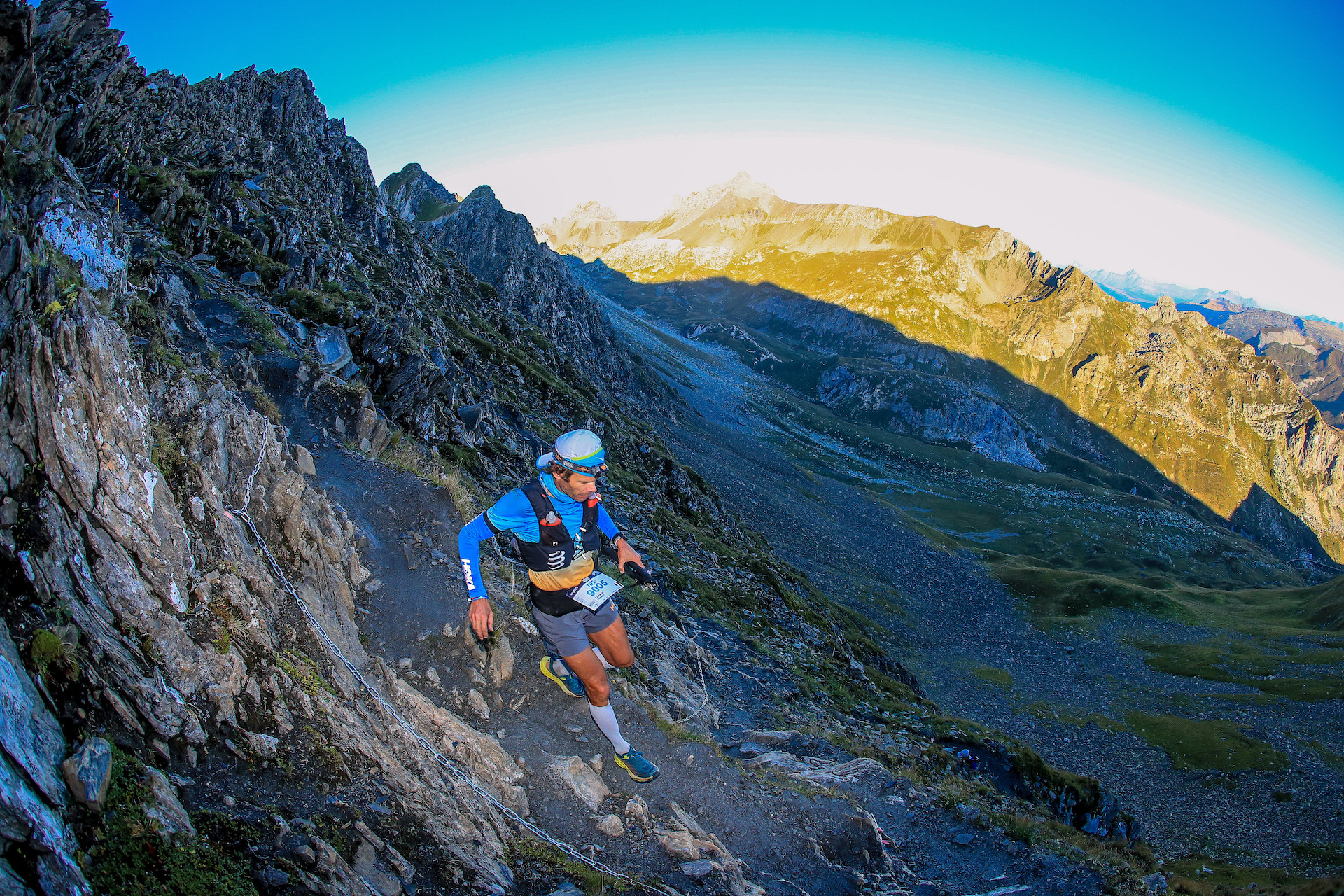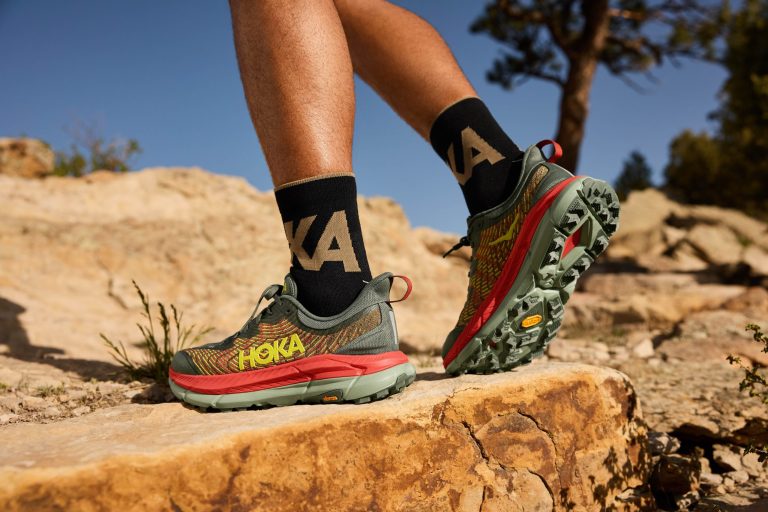With a little help from the trail running pros at Hoka, the Outdoors Magic team is in Chamonix this week for UTMB (Ultra-Trail du Mont-Blanc) – possibly the most iconic series of mountain races in the world. Elite athletes and dedicated amateurs from across the globe are here to battle against some of the Alps’ most brutal terrain – as well as soak up the festival-like atmosphere, with an estimated 10,000 runners in town for the action.
There are seven main races in the annual UTMB extravaganza, of varying distances and routes, such as the 100km Courmayeur-Champex-Chamonix run (known as the CCC) or the 55km Orsières– Champex–Chamonix (the so-called OCC). But the pinnacle is the UTMB, a 170km route that loops around Mont Blanc, journeying through France, Switzerland and Italy and racking up a whopping 10,000m+ of ascent along the way.
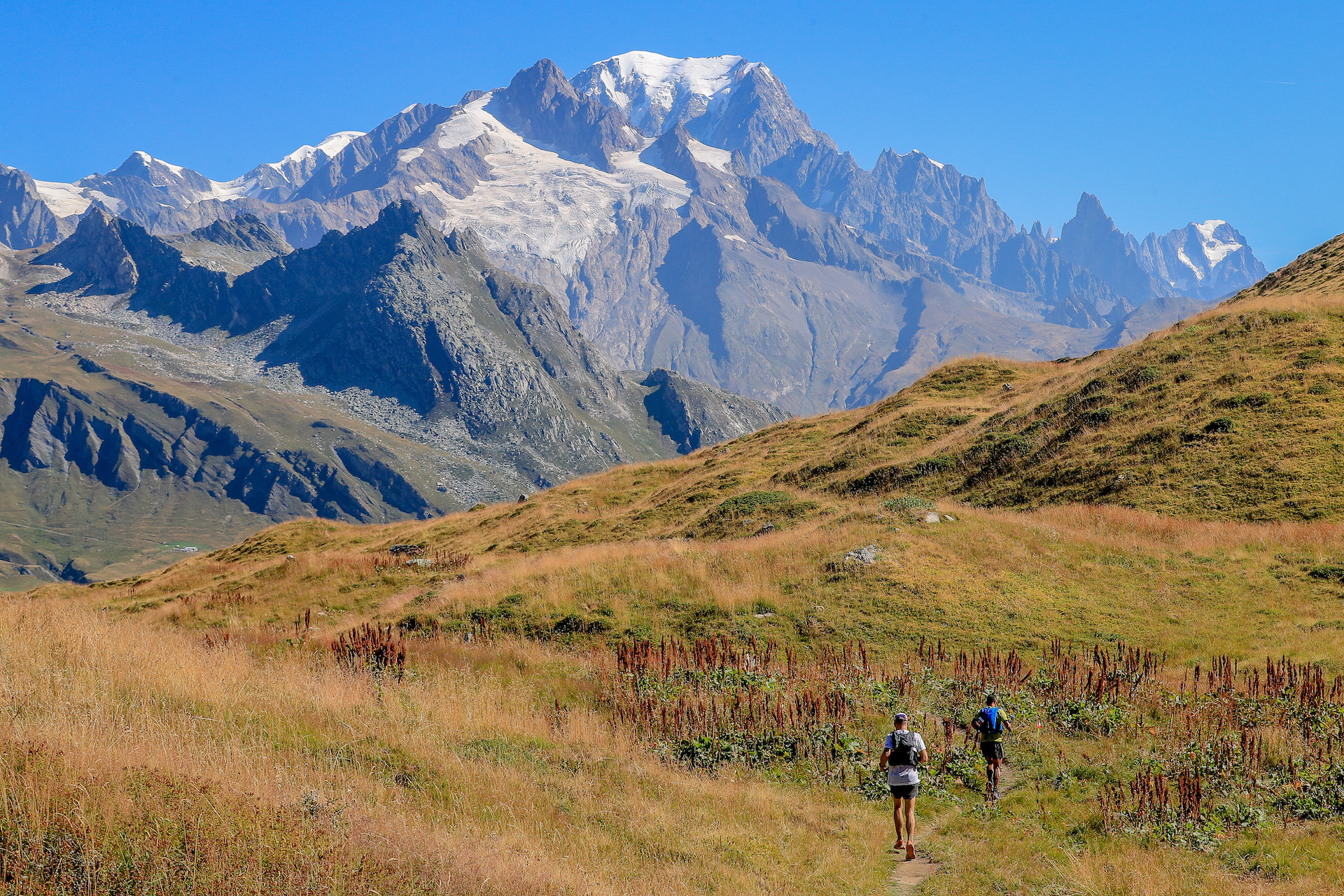
The stats are daunting, particularly when you know that 35% of UTMB starters in 2021 did not finish. Of the 2,346 entrants, only 1,521 made it to the finish line, with the other 825 succumbing to the demands of the unforgiving terrain and mind-boggling distances. It’s fair to say, therefore, that just finishing the UTMB, let alone winning it, is a massive achievement in its own right.
But how do these intrepid ultra-runners prepare for such an undertaking? Of course a lot is down to intense training, a careful diet, mastery of mountain running technique, and so much more – but in this article we’re focusing on the mental challenge of ultra-running. How do these athletes stay mentally strong? How do they stop themselves getting overwhelmed by the enormity of the journey? And what inspires them to keep going when so many others would throw in the towel?
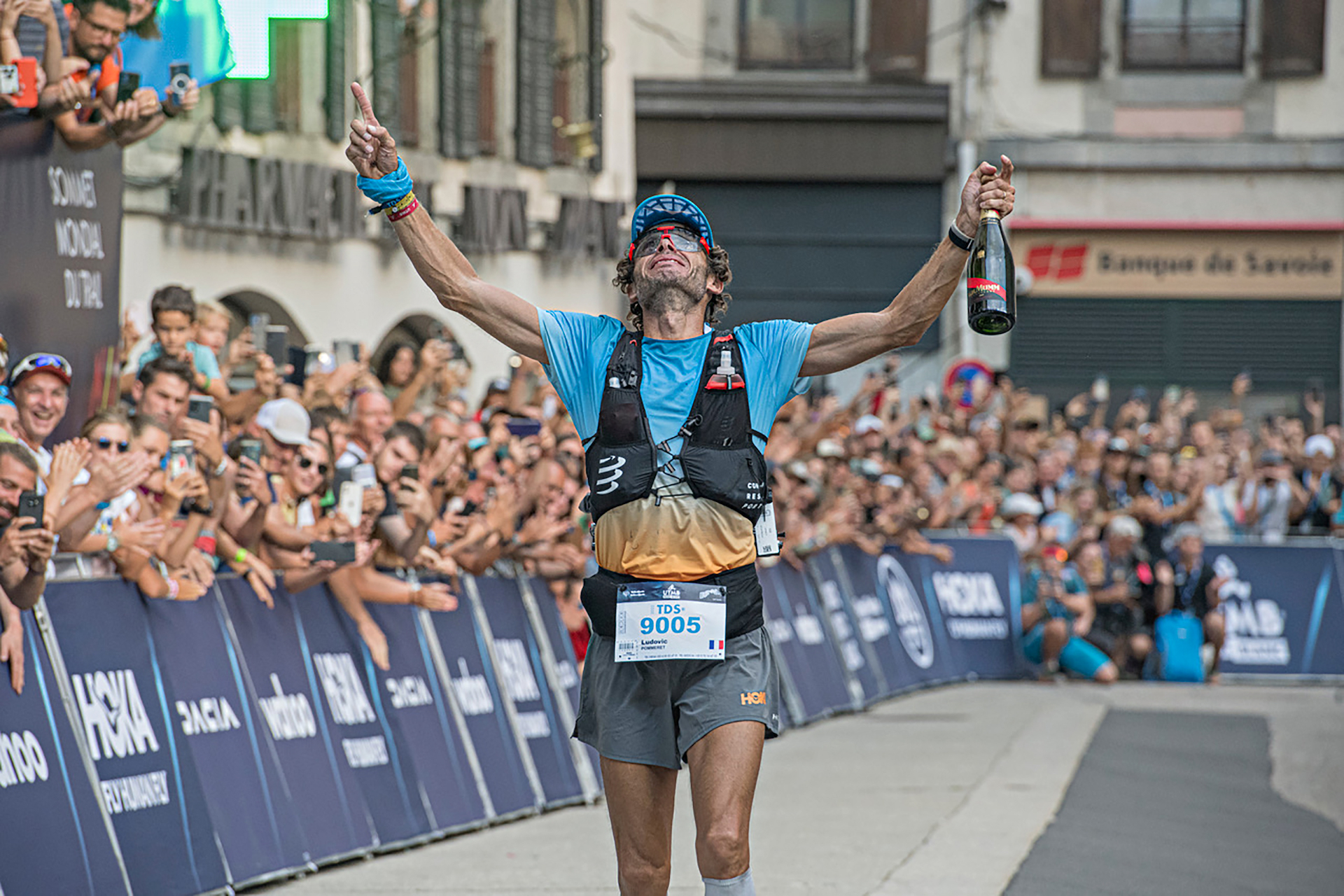
In this article we speak to Frenchman Ludovic Pommeret, an ultra-runner sponsored by Hoka – the popular trail running brand that is supercharging many competitors with its ultra-cushioned, high-energy footwear – for his advice on preparing for one of the world’s toughest races. Ludovic won this year’s 145km TDS (Sur les Traces des Ducs de Savoie) race, crossing the line with a heart-warming outpouring of emotion, and previously won the full UTMB course in 2016.
Firstly, congratulations Ludovic on your victory – how did it feel crossing the finish in first place?
It was a quite special because I lost my mum in March, so there was a lot of emotion at the finish line for me. Family was a big motivation for this race – the family that is present and the family that has also left. I think all runners feel the same emotions on crossing the finish line, no matter if you finish first or last. It is an emotional moment for all runners.
What tactics and strategies do you use to deal with the mental – rather than physical – challenges of an event like the TDS?
I prefer to start conservatively at an easy pace. Psychologically it’s far better to pass other runners as the race progresses, rather than going out fast and being overtaken, which can be demoralising. Feeling strong and passing other runners feels far better.
Related: Best Trail Running Shoes Reviewed
I also divide the race into small pieces, into intermediate objectives, bite-sized targets, and divide again and again. It’s far easier to physically and mentally reach these smaller goals. If you are thinking only of arriving at the finish line, it’s too far away, and is something you cannot feel – it’s out of reach. That’s one of the tools I use.
During the TDS race, did you have any particularly low moments or struggles, and how did you overcome them?
This year I was never low, because I was always in – I would say – my comfort zone. Of course I tried to push hard at times, but I was never low. However, if I take a past UTMB race, that was really different. I was sick close to the beginning after three hours, and I was at rock bottom and it was tough in the head, mentally. You don’t want to drop out or face failure, and sometimes the goal becomes just to finish rather than achieve a top place – it doesn’t matter about the time.
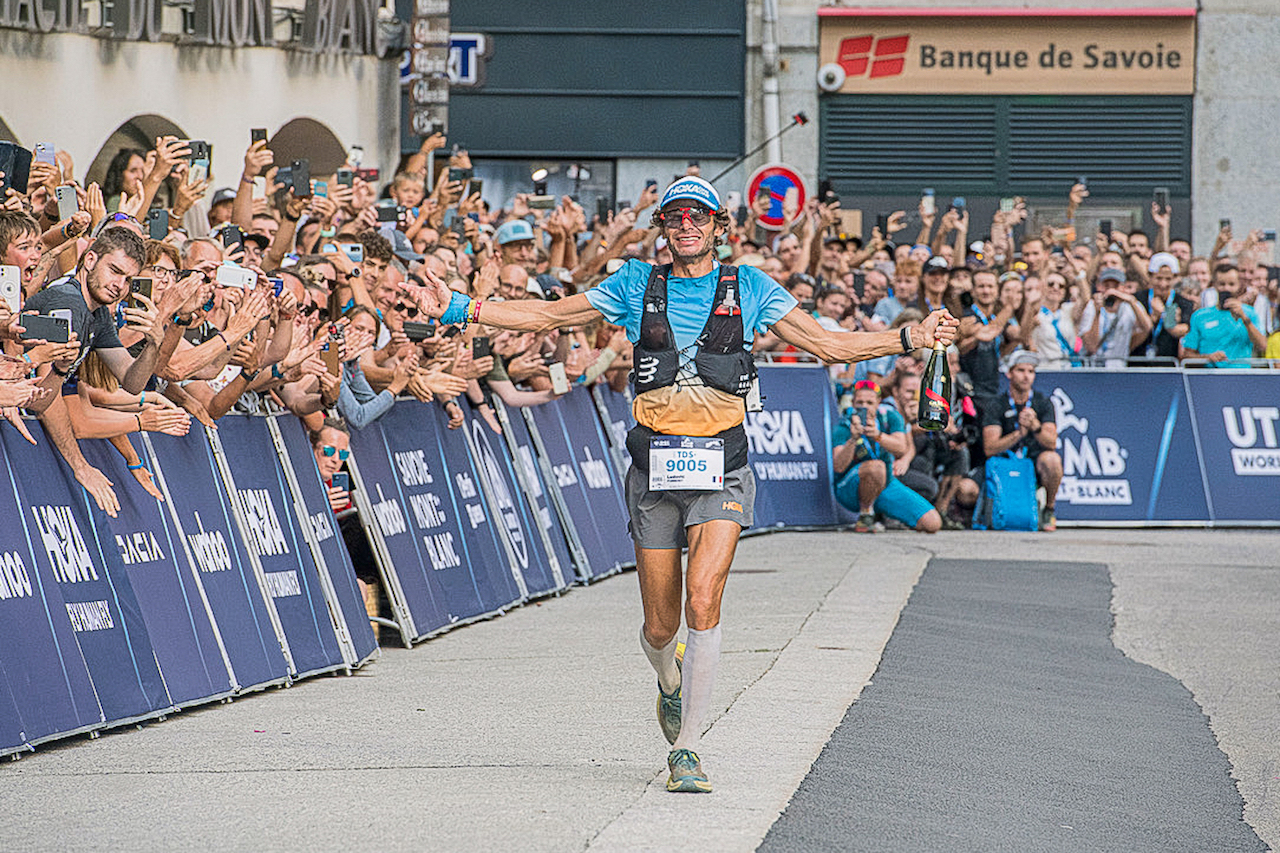
When I feel low, the experience of past races and past failures really helps. I also think about my family, or the next aid station. My coach says that quite often, in every race, you will have high and low moments – but you have to take care, especially, in the high moments, because they often come just before the low moments. You can’t get carried away.
Do you set yourself strict targets for a race, or do you go with the flow and see how your body reacts?
I try to fix some objectives from the start that are challenging but reachable. I would never say to myself ‘just destroy it and go for the win’. Instead it is good to set an achievable target, but if you don’t make it, just think positively – ‘okay, the race was not as expected, but that’s fine’.
Do you use any techniques to psyche yourself up before a race?
No, I don’t have anything special – not really.
What do you do in the week before a big race?
I try not to put myself under pressure. It’s difficult to sleep with high pressure, and of course you need to sleep well and rest before a race. So I always do something different than running. Only thinking about the race is a bad thing, you will become too focused on the race and forget to do anything else. You need to take your mind away from it all. The week before TDS I just focused on normal life. I was on vacation with my family and it was relaxing.
Follow the UTMB 2022 at utmbmontblanc.com

